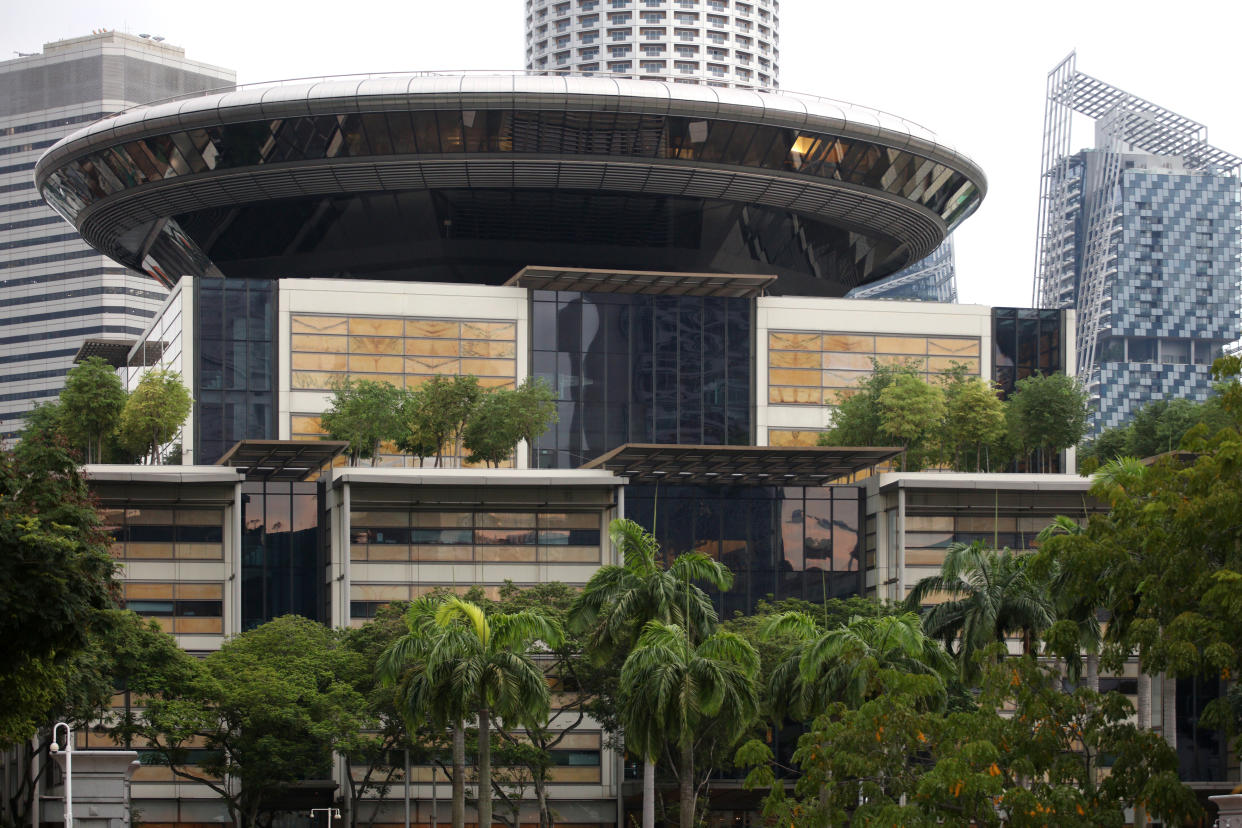Lawyer M Ravi fails in court bid to prevent review of seized phone, laptop

SINGAPORE — Lawyer M Ravi, who is under police investigation for contempt of court, on Tuesday (13 October) failed in his bid for a court order to prevent the Attorney-General’s Chambers (AGC) and the police from reviewing his seized phone and laptop.
In dismissing the case, Justice Ang Cheng Hock said Ravi did not present any evidence to support his claims that the seized items contained legally privileged material.
In March, the police began investigating four people for contempt under the Administration of Justice (Protection) Act (AJPA), after online articles were published in relation to ongoing court proceedings which the police said posed a risk of prejudicing or interfering with the proceedings.
Apart from Ravi, the others who were probed are Terry Xu, editor of news site The Online Citizen (TOC); Danisha Hakeem, a TOC writer; and Mohan Rajangam, a man who claimed to have been extradited to Malaysia without due process following his arrest in 2015.
On 10 January, The Online Citizen’s Facebook page carried a post containing information about a criminal revision filed in the High Court by Ravi on behalf of Mohan. The post contained a link to a TOC article written by Danisha. Both the post and article made reference to matters in Mohan’s affidavit, which had not been entered into hearing.
The police suspected that Ravi was involved in the publication of the TOC Facebook post and other online posts relating to the court matter, and that he had committed contempt of court. They were authorised by the Attorney-General to initiate investigations. The police said the repeated publication of the contents of Mohan’s affidavit suggested a concerted effort to publicly advocate for his cause ahead of the court hearing for the criminal revision.
On 13 January, three police investigators entered Ravi’s office at Carson Law Chambers and seized his mobile phone and work laptop. Ravi told the officers that the seized items contained confidential information that was protected by legal professional privilege.
From 15 to 26 March, Ravi sent several letters to the police and AGC regarding his seized electronic devices. He told the police not to access the items until the court rules on the matter.
On 20 April, after being told by AGC that a separate team of AGC officers who will not be involved in ongoing investigations against him will review the contents of his devices, Ravi applied to the High Court for leave, or permission, to begin a judicial review to obtain a prohibition order.
He argued that the contents of his items were protected by legal professional privilege under the Evidence Act. The case was heard before Justice Ang in August, with judgment reserved.
In dismissing Ravi’s application on Tuesday, Justice Ang said in his written grounds, “In my judgment, I am not satisfied that the plaintiff has adduced sufficient evidence to establish a prima facie case of reasonable suspicion that the content of the seized items is legally privileged.”
Justice Ang noted that AGC had contacted Ravi to ask him to identify what in the seized items was legally privileged. “However, there was no useful response or co-operation from the plaintiff,” said the judge.
“This is particularly perplexing because the plaintiff, as an advocate and solicitor, owed his clients a duty to help protect their privileged communications and information. He would thus be discharging this duty to his clients by identifying to the AGC what items in the phone and laptop are privileged. That would obviate any risk of the AGC and the police examining material which they are not interested in for their investigations and which are legally privileged,” said Justice Ang.
“To be clear, if the plaintiff had rendered his assistance, that would have allowed the AGC to quickly sift out the legally privileged material that are irrelevant to the AJPA investigations,” he added.
The judge said that even in the court proceedings before him, Ravi did not identify in his affidavit “who the clients in question are who are asserting privilege and the specific information/files over which privilege is asserted”.
“Given the lack of any evidence as to the identity or nature of the allegedly privileged material, it is quite impossible for the court to decide if privileged material exists in the seized items. I cannot assume that privileged material exists in the devices just because they were seized from the plaintiff who is a lawyer. In these circumstances, I am wholly unable to reach a conclusion that the contents of the seized items are privileged,” added the judge.
Stay in the know on-the-go: Join Yahoo Singapore's Telegram channel at http://t.me/YahooSingapore
More Singapore stories:
4 Indonesian men arrested for illegal entry after swimming to Tuas
Baby boy possibly suffocated after being placed belly down to sleep: Coroner

 Yahoo News
Yahoo News 

